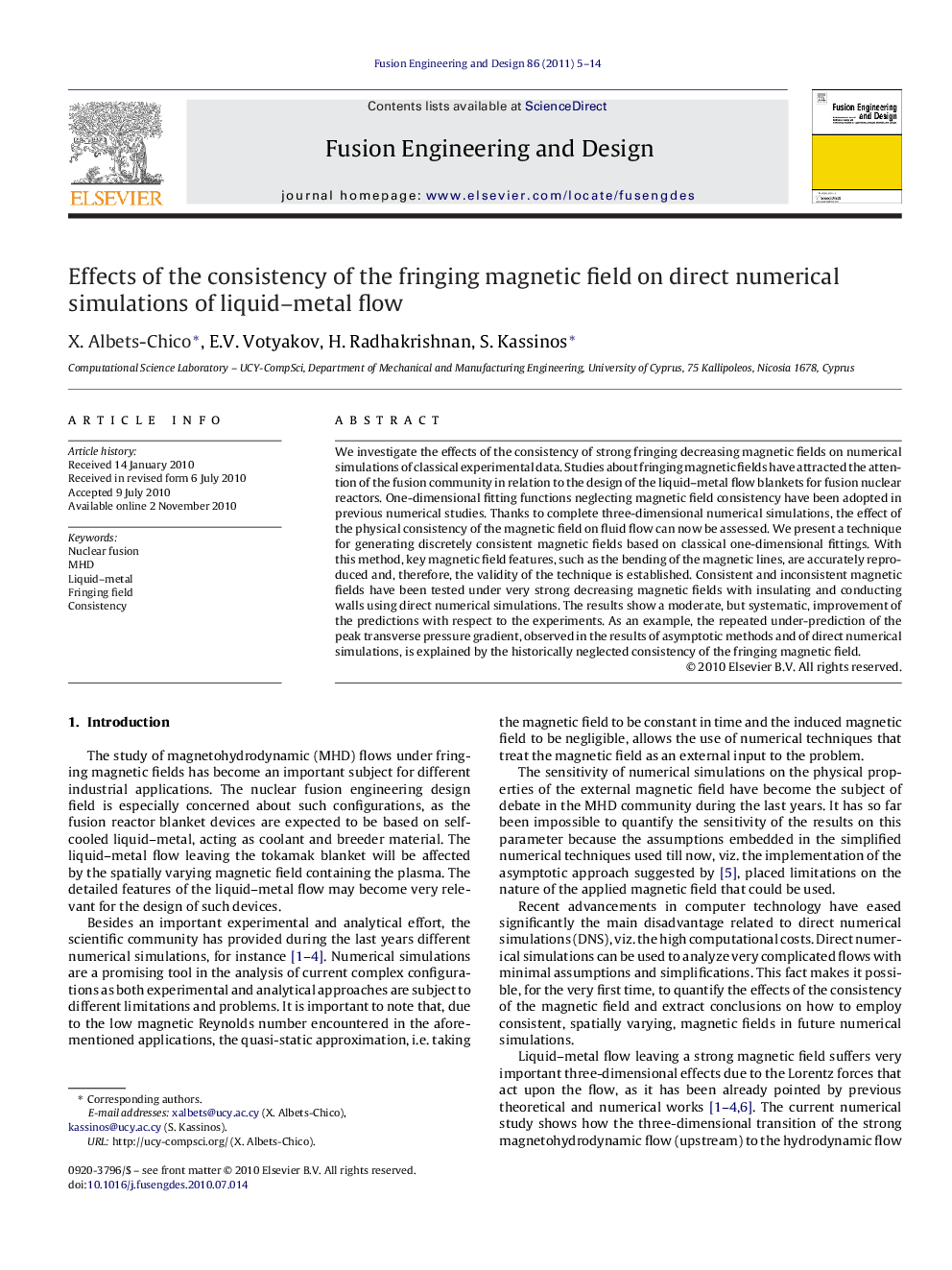| کد مقاله | کد نشریه | سال انتشار | مقاله انگلیسی | نسخه تمام متن |
|---|---|---|---|---|
| 272432 | 505022 | 2011 | 10 صفحه PDF | دانلود رایگان |

We investigate the effects of the consistency of strong fringing decreasing magnetic fields on numerical simulations of classical experimental data. Studies about fringing magnetic fields have attracted the attention of the fusion community in relation to the design of the liquid–metal flow blankets for fusion nuclear reactors. One-dimensional fitting functions neglecting magnetic field consistency have been adopted in previous numerical studies. Thanks to complete three-dimensional numerical simulations, the effect of the physical consistency of the magnetic field on fluid flow can now be assessed. We present a technique for generating discretely consistent magnetic fields based on classical one-dimensional fittings. With this method, key magnetic field features, such as the bending of the magnetic lines, are accurately reproduced and, therefore, the validity of the technique is established. Consistent and inconsistent magnetic fields have been tested under very strong decreasing magnetic fields with insulating and conducting walls using direct numerical simulations. The results show a moderate, but systematic, improvement of the predictions with respect to the experiments. As an example, the repeated under-prediction of the peak transverse pressure gradient, observed in the results of asymptotic methods and of direct numerical simulations, is explained by the historically neglected consistency of the fringing magnetic field.
Journal: Fusion Engineering and Design - Volume 86, Issue 1, January 2011, Pages 5–14